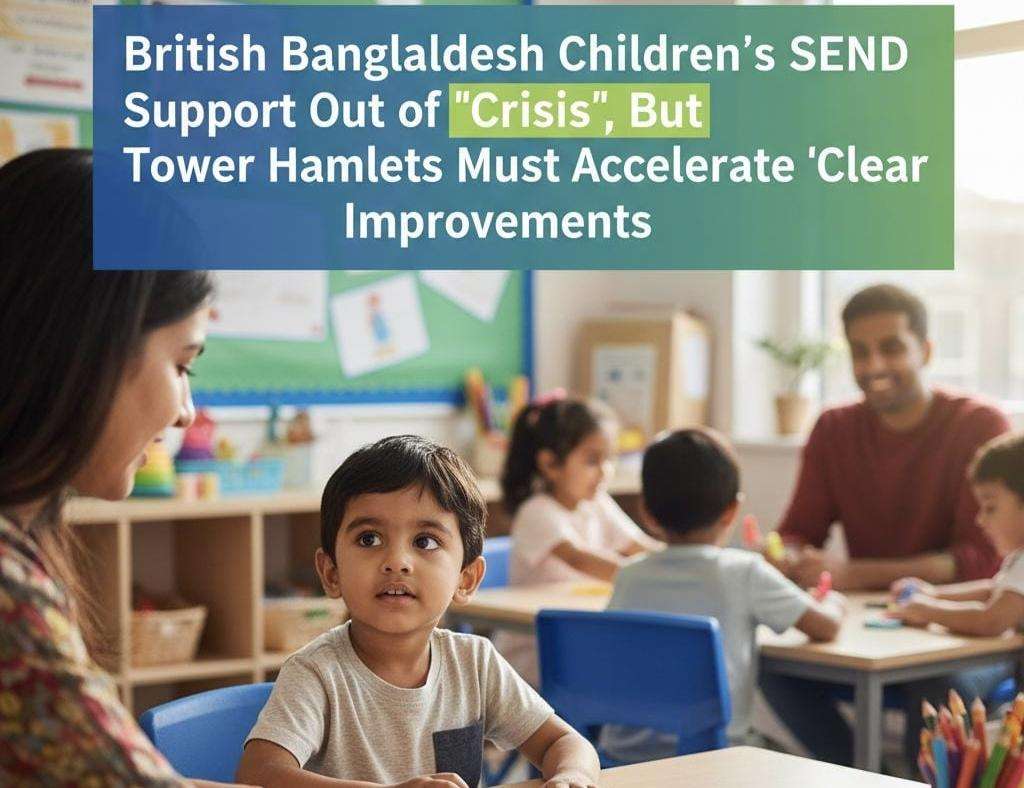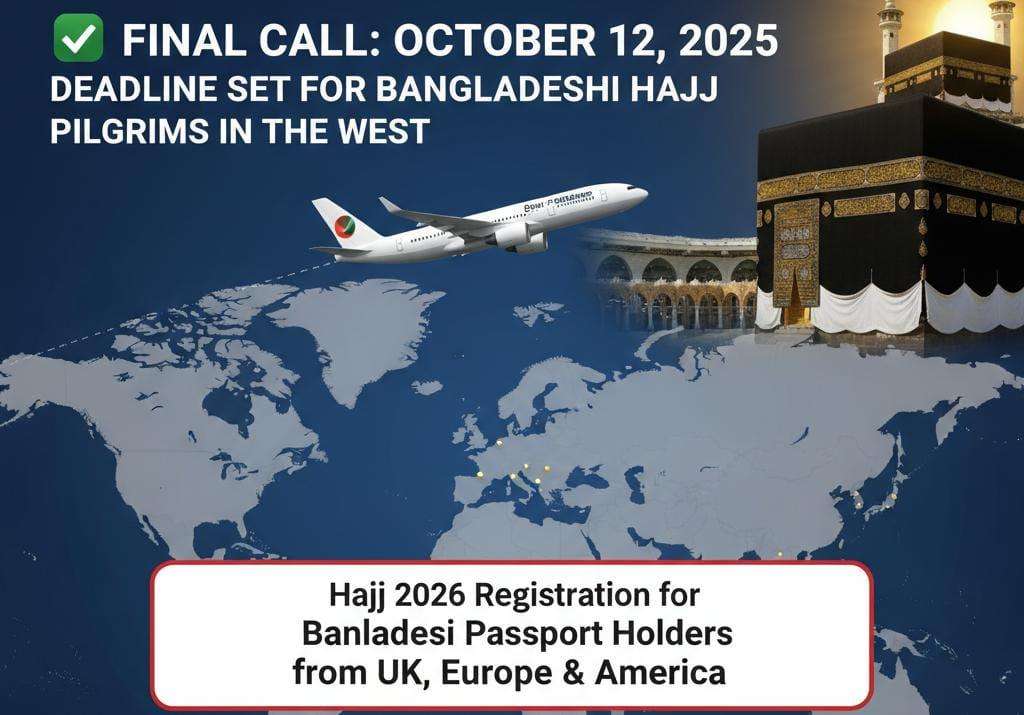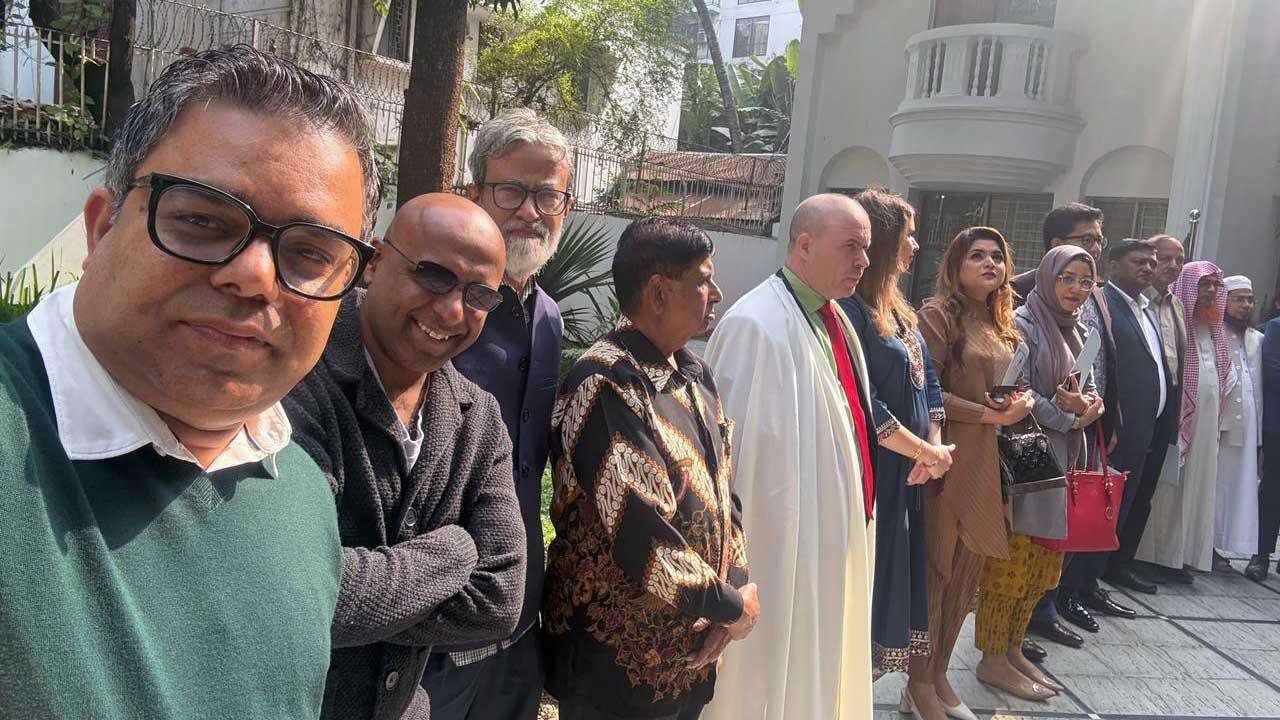The December 11 of 1960 is an important and eventful event in the life of Algerian people as the African country lost over 100 lives and 1000 injured during a mass demonstration against French colonial ruler Charles De Gaulle in the pursuit of liberation revolution
Ambassador of Algeria to Bangladesh Dr Abdelouahab Saidani has expressed this view while hosting a reception at his Gulshan residence on Monday marking the 64th anniversary of the historic December 11 of 1960 mass demonstration.
Ambassador of Algeria to Bangladesh Dr Abdelouahab Saidani in his speech said “the 64th anniversary of the demonstrations of 11 December 1960, one of the most impactful events in Algeria’s history and turning point in the liberation Revolution. “
Dr Abdelouahab Saidani said, “The uprising came during President Charles De Gaulle tour to Algeria from 9 to 12 December to rally support for his third way solution for a transition to an “Algerian Algeria”. The ultimate goal was to preserve the political and the economic interests of France after the independence of Algeria.”
To do this, he decided to exclude the FLN (National Liberation Front), the legitimate representative of the Algerian people, from any negotiation concerning the future of Algeria.
In this regard, President De Gaulle had created local councils through elections in which his supporters obtained a majority while opposing the idea of integration.
He also sought to build an Algerian army of traitors and agents.
However, the European supporters favoring the idea of “French Algeria” and their sympathy in this regard have met Gaulle with rejection, anger and strikes. In reality, this project provoked a feeling of humiliation among French and European settlers.
In retaliation, attacks were targeted against the indigenous people. In this context, the Algerian people rose on December 11, 1960 in counter demonstrations, defending their country and its sovereignty. It was in the Capital Algiers, more precisely in Belkourt district, that the first revolts broke out on December 11.
The Algerian diplomat said “The demonstrations which spread like wildfire to the other cities, met with brutal repression. There were more than 100s brutally killed and 1000s were injured or went missing during these tragic events. They succeeded however in upsetting the colonial order. Battle moved to the cities, pressure on the mujahideen in the mountains and deserts eased, the French forces disintegrated, and their arsenal war failed. It was during these demonstrations that the first Algerian flag was raised. The flag is composed of a red star and crescent that mobilizes the bloodshed from the martyrs, on white and green background, symbolizing peace and freedom. These tragic events also showed Algerian people’s unwavering commitment to their armed Revolution (1954-1962) by responding to the call of its leadership FLN. The people chanted, “Long live Algeria”, “Down with colonialism”, “Algerian national and territorial unity”, “The Sahara is Algerian”, and “No to the division of Algeria”. Indeed, the following events were a turning point in the course of the armed Revolution. They forced the French President De Gaulle to withdraw his project on the third way. He returned to France disappointed, admitting that the situation was not according to what he had anticipated. “
De Gaulle was forced to give up on his idea. He finally decided to start negotiations with the FLN. These demonstrations were a huge shock for De Gaulle and the European supporters of a French Algeria. It was an end to the propaganda conveyed by France pretending the return of peace in the major cities, and was a clear frustration in the line of victory of the colonial armies.
Internally, these demonstrations highlighted the popular national and territorial unity through the unity of ranks behind the National Liberation Front party, FLN. Many historians of the liberation war have described the demonstrations of December 11, 1960 as a pivotal stage in the course of the Algerian Revolution. The demonstrations of 11 December 1960, was an explicit expression of the Algerian people’s rejection of any option other than total independence.
The demonstrations have significantly contributed to internationalization of the Algerian cause and brought about more media coverage, accelerating negotiations for independence.
De Gaulle’s visit coincided with that years UN General Assembly, which adopted two Resolutions with a bearing on the Algerian issue: Resolution 1514, the UN Declaration on the Granting of Independence to Colonial countries and Peoples (adopted on 14 December), and Resolution 1573, on Algerian self-determination (19 December), which recognized the right of self determination as the only basis for the solution of the Algerian matter.
Meanwhile, on the 64th anniversary of the historic December 11, 1960, mass demonstrations, President Abdelmadjid Tebboune in Algiers delivered a heartfelt message that celebrated the Algerian people’s unwavering fight for freedom and the enduring legacy of their sacrifices.
His address, steeped in patriotism and historical reverence, highlighted the profound significance of these demonstrations as a symbol of national unity and resistance against colonial oppression.
President Tebboune began by honoring the Algerian people’s sacrifices, describing the demonstrations as a pivotal moment in the nation’s quest for independence. Against the backdrop of colonial tyranny, these protests represented a collective cry for freedom, dignity, and justice. They showcased the Algerian people’s unwavering support for the objectives set forth in the Declaration of November 1, 1954, which marked the beginning of the revolutionary struggle for liberation.
The December 11, 1960 demonstrations were a turning point that demonstrated the deep cohesion and patriotism of the Algerian people. It was a moment when unity triumphed over division, and the determination to achieve national sovereignty became the guiding force for the revolution. President Tebboune emphasized that this spirit of unity continues to define the Algerian people, who have inherited a sacred legacy from the martyrs of the revolution.
Reflecting on the lessons of history, President Tebboune outlined the nation’s ongoing efforts to build a strong, stable Algeria.
He acknowledged the challenges posed by the current regional and global environment, emphasizing the importance of fortified institutions, economic resilience, and a robust defense shield provided by the National Army. These elements, he said, are vital to safeguarding Algeria’s sovereignty and territorial integrity in an unpredictable world.
The president also highlighted the Algerian people’s collective consciousness as a source of strength against external conspiracies and internal discord. He praised their vigilance in protecting national stability and tackling critical issues of sustainable development, which are shaping the new Algeria. Tebboune lauded the people’s patriotic spirit, which fuels their dedication to noble objectives and preserves the martyrs’ legacy.
President Tebboune concluded his message with a tribute to Algeria’s martyrs, whose sacrifices continue to inspire the nation’s journey.
He extended heartfelt greetings to the liberation veterans, the mujahideen, expressing gratitude for their contributions to Algeria’s independence. With a call to honor their memory, he reaffirmed Algeria’s commitment to building a future that reflects the dreams and aspirations of its forebears.
In his closing words, President Tebboune declared, “Long live Algeria! Glory and eternity to our valiant martyrs.” This message encapsulates the enduring spirit of a people whose history is marked by resilience, unity, and an unyielding quest for freedom.
As Algeria commemorates this landmark anniversary, the nation looks back on its revolutionary heritage with pride and forward to a future defined by progress, stability, and unity.








.svg)

